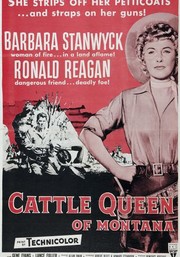
Not as bad as some others have 's a lightweight Bob Hope comedy, after all. lots of spies, intrigue, and exotic "foreign" locations, just like a James Bond flick. After the assassination, 007 makes one of his inimitable quips as he says: 'She should have kept her mouth shut'. A window opens (appearing to be Ekberg's mouth) and Krilencu exits the building on a rope and is shot. I can see why Broccoli wanted to do this project. It shows an Anita Ekberg head shot on the side of a building when 007 and Ali Kerim Bey are about to assassinate Krilencu. NO SONGS! and a five minute bit with a 30-something Arnold Palmer.

This film is very similar to Hope's "Road" movies with Bing, but moves slower. Viewers will recognize Jeffries, who played the grandfather in Chitty Chitty Bang Bang. Co-stars Anita Ekberg, Edie Adams, and Lionel Jeffries round out the cast. must be the first to find it, so they hire African expert Matthew Merriwether (Bob Hope). The basic premise is that one of our space ships has gone astray, and landed in Africa. The credits don't list who does the voices for John Kennedy or Kruschev at the opening, but clearly its a reflection of the politics of the day. Acc to IMDb, this was the second film produced by Eon productions. Recently the band reformed with Paul Revelli on drums, Pete Anderson on bass, Sleepy Hacienda on vibraphone, Ted O' Connell on guitar and Jeb Stewart on guitar and vocals.Lots of one-liners by Bob Hope, in this film produced by Albert Broccoli, who did all the early James Bond movies. Call Me Bwana Pressbook 1963 Bob Hope, Anita Ekberg, Edie Adams by Directed by Gordon Doulgas / Starring Bob Hope, Anita Ekberg, Edie Adams and a great. Then, after several successful solo albums, Ned moved to Hawaii. Meanwhile we went back into the studio and made "Bowlegged". We put ourselves out there once again and even got invited down to Austin to play the revered Continental Club for a three night stand. Eventually Revelli got busy playing better-paying gigs, so we re-formed again, this time with Ned Selfe on the digital pedal steel, and Hacienda back on the drums. Two years later we made another CD, entitled "Pigs in a Blanket", and, with manager Jean Greendyke at the helm, rode the wave all the way to the big stage at the Fillmore and the record company audition at Club Lingerie in LA. So, we moved Slee onto the marimba, Paul Revelli joined the band on drums, and we put ourselves out there.

Before the album was even released Frank moved to Wisconsin, and, as we watched the album gain popularity, we wondered what the hell we were gonna do.

Call me bwana movie#
When Jeb returned to Marin we went into the studio again and laid down several more tracks - enough to put out on vinyl - and, shortly before release, Frank saw this wacky Bob Hope movie - "Call Me Bwana" - and thus we changed the name and put out our first album, "Big Fat Fun". Then Jeb moved to Arizona for a couple of years, while Frank, Pete and Slee continued to write and record.

Around 1983 we went into the studio and laid down several tracks, direct to two track. Frank, a multi-instrumentalist with fantastic pedal steel chops, and Jeb had been writing songs together for several years, so we pulled in Pete on bass and Hacienda on drums and started playing local clubs as "Jeb Stewart and the Crazy Beets". Bwana was formed when Frank Anderson and his brother Pete got together with Jeb Stewart and drummer Dave Casini (herinafter known as Sleepy Hacienda). And though many years have passed, the Bwana sound is still completely one-of-a-kind – as “hyphen” as it ever was. We performed at the Fillmore, we we're invited to Austin to play the Continental Club, we made our own records, we got love letter from DJs from Steven's Point, WI to Mallorca. Enemy agents Ekberg and Jeffries try to make things difficult. For about four years Call Me Bwana was a hot band on the SF club-circuit and college radio stations around the country - "Rodeo Girls", off our first album "Big Fat Fun", even went to number one at the Sonoma State University station, right above Sting and David Lindley. Call Me Bwana 1963 Pure cornpone with Hope as a bumbling explorer sent with CIA agent Adams to track down a lost American space capsule in deepest Africa. As Steve Solder so aptly wrote in BAM magazine around 1988, "file this one under hyphen music, as in rockabilly-TexMex-surf-ska-bubblegum-country-cajun-pop".


 0 kommentar(er)
0 kommentar(er)
